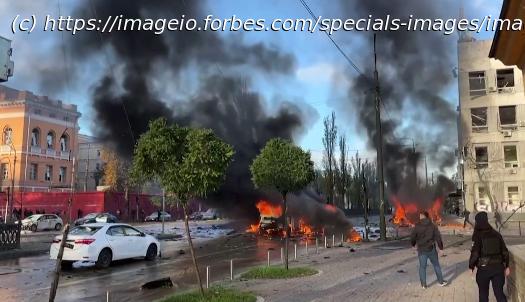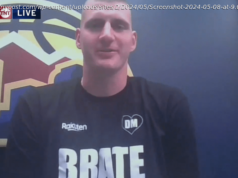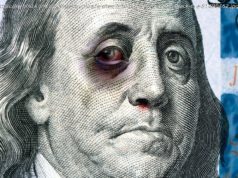Ukrainian entrepreneur Oleksiy Gulevych, featured in part one, shares more here from battle-torn Ukraine. Gulevych is a case study of effective leadership and decision-making under siege, illuminating the psychological characteristics required of leaders in extreme duress.
This article focuses on Ukrainian entrepreneur Oleksiy Gulevych, who was featured in the first of this two-part long-read, Waiting for the worst but believing in a miracle. While the intent of this second installment is to illuminate certain psychological characteristics required of entrepreneurs and business executives to effectively lead in situations of extreme duress, it is not an after-the-fact analysis.
The brutal, reprehensible russian assault on Ukraine and the Ukrainian people is ongoing. On October 10, a barrage of missile strikes was launched on multiple cities, including Kyiv, targeting civilians and critical infrastructure. Oleksiy sent a WhatsApp message assuring that he and his family were grateful to alright, for the time being at least, and he was trying to continue working.
Information about how to help Oleksiy’s business, Janda, appears at the end.
There’s a story about two frogs that fell into a jug of sour cream. One frog gave up and drowned. The second knew she had to fight for herself. She floundered at first but after a while, whipped the sour cream with all her might and turned it into a piece of butter. She pushed off the solid oil and jumped out of the jug. And she remained alive.
There’s no shortage of books and articles describing leaders challenged by tragic or overwhelming circumstances, who faced long odds of success, overcame fear, dread, and uncertainty, navigated some or other crisis, and marshaled the wherewithal to carry on and prevail.
Profiles abound charting the characteristics of effective wartime CEOs where “wartime” as Ben Horowitz, general partner of the venture capital firm Andreessen Horowitz, defines it, is “an environment wherein companies are fending off an existential threat.” These can include landscape-scale crises such as the September 11, 2001 attacks; the global financial meltdown of 2008; COVID-19; the key man risk of an irreplaceable founder/leader’s physical or mental health crisis; or organization-specific scandals and incidents that imperil an institution’s ability to function or survive.
Others take wartime leadership literally, providing counsel from former military commanders who draw from their training and combat experience to instruct civilian leaders “who send their people out to do battle in the business world … [to] learn from the general’s ability to see the world from the foot soldier’s point of view even as he surveys the big picture.” The United States army published its own unclassified, open-source field manual on Leader Development—FM 6-22—that “provides a doctrinal framework covering methods for leaders to develop other leaders, improve their organizations, build teams, and develop themselves” and codifies the tenets to “achieve mission accomplishment in dynamic, unstable, and complex environments” grounded in the view that “leaders are the competitive advantage.”
Oleksiy Gulevych is in a different category: a leader in war-ravaged a locale literally fighting to stay alive, protect family and workforce, and maintain even a scaled-back version of business operations under mortal threat.
Gulevych recently told me the story of the two frogs, and there’s no doubt which one he identifies with. Here, a deeper dive into what differentiates the frog who prevails from the other who succumbs, what the requisite traits are and how and why they matter.
The value of children’s lives tips the scales of business
Part one of this series was published on August 24, the 31st anniversary of Ukraine’s independence and six months to the day since russian president vladimir putin launched his reckless and immoral attack on this peaceful neighboring democracy. [Ukrainians write the name of the country and its tyrannical leader with a small letter as an intentional sign of disrespect, a practice extended in solidarity throughout this article].
The centerpiece of that installment was Gulevych’s first-person account of the war’s impact on his and his wife Olesya’s life and on their business, Janda, a specialized high-tech clothing manufacturing and retailing company based in Kyiv. His harrowing testimony opened a window into how russia’s invasion of Ukraine has affected regular folk and, as one reader shared privately after the piece was published, “filled in the mosaic of human individual stories behind the headlines.”
Gulevych also presents a gripping case study of leadership and high-stakes decision-making under siege, and provides an opportunity to consider the underpinning psychology of effective crisis response in grave circumstances:
“Where many entrepreneurs and chief executives characteristically wall off or conceal vulnerabilities, Gulevych’s composure under extreme duress and openness and expressivity about his anxieties and fears—which are situationally far beyond the realm of crisis business leaders typically face—point to a host of psychological traits more leaders would do well to develop and emulate.”
His ability to connect to his deep love and care for his wife, children, parents, and faith, and the swirl of intense emotions around potentially losing everything dear, including his home, business, and even homeland, while making life and death choices to survive under siege are likewise exceptional capacities to unpack and study. These are too often eclipsed in the literature on leadership by valentines to conventionally normalized strengths and competencies that form the typical leadership profile but which, in truth, sidestep, compromise, and block empathy, resilience, and a host of other qualities conducive to potent, moral leadership.”
Almost every leader will encounter a crisis at one point or another. Some respond effectively. Others less so. But what distinguishes those who can meet and traverse overwhelming circumstances exceptionally? Are able to galvanize others to stay with and support them through the crisis? Who can communicate their vision of a solution and maintain a sense of hopefulness and optimism around charting a course forward and, even more, remain sufficiently psychologically and emotionally balanced to execute to achieve those aims and prevail?
The psychological mixture is thick. There are no simple answers. Here are three elements of paramount importance, though less commonly foregrounded than many of the more familiar leadership traits:
Hopefulness
“Not everything is so good in this life … war came to Ukraine …. everything collapsed in one moment …
We didn’t know what would happen next. We dropped everything and left.
Everything that took so long to build and develop crumbled like a house of cards in the blink of an eye.
Home
United States
USA — mix Two Frogs In Sour Cream—A Ukrainian Entrepreneur’s Lessons On Leadership Under Siege...






